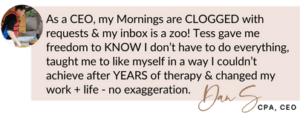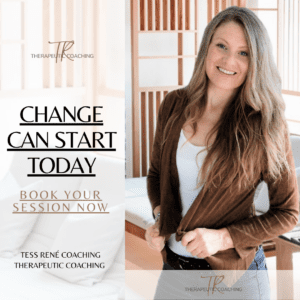But learning how to deal with negative emotions can change everything.
Instead of being ruled by them, you begin to see your feelings as information, not enemies.
Table of Contents
When You’d Rather Hide Than Feel

Avoidance feels protective but it often keeps the tension alive beneath the surface.
“Every feeling you avoid gets stored in the body as energy…”
Let’s be honest, no one enjoys feeling sad, furious, or afraid. When life gets tough, it’s natural to distract, control, or rationalise it away.
However what we try to escape usually ends up running the show.
When you push away sadness, it may show up as irritation. Suppressed anger leaks as anxiety and bypassing fear can sneak in as perfectionism.
It may feel good in the moment, but each time we avoid a feeling, we subtly tell ourselves we don’t believe in our ability to handle our own emotions.
Learning how to deal with negative emotions starts with noticing how you dodge them. Every time you pause instead of running, you build resilience.
A Note From Your Nervous System
Every feeling you avoid goes somewhere, it doesn’t disappear, it just changes costume and gets stored in the body as energy.
Let’s look at what’s really happening beneath that urge to bolt.
-
Where discomfort shows up in your body.
-
Which emotions you tend to label as “bad” or make you want to “do something” right away.
-
Which emotions feel unsafe to express.

When we Don’t Deal With Negative Emotions

Naming what you feel helps tame the chaos; even if it starts with a growl.
“Trying not to feel becomes its own form of control….”
Avoidance is protective but expensive.
When fear causes us to block or bypass negative emotions, they don’t leave. Instead, they simmer and twist into beliefs like “I’m too sensitive” or “I shouldn’t feel this way.” Over time, that inner pressure affects our relationships, our health, and even our self-worth.
Eventually, it’s like trying to hold a beach ball underwater: eventually, it bursts through the surface, usually where you least expect it.
Trying not to feel becomes its own form of control. Ironically, the thing you’re avoiding ends up running the show. Here’s what might be hiding under the surface when you avoid emotion.
We don’t deal with negative emotions because:
-
We were never taught how to feel safely.
-
We judge our emotions as weakness.
-
We’ve watched others model repression and learned to copy it.
Try this mini experiment before a big feeling hits and ask:
-
What emotion do I find hardest to sit with?
-
Who taught me (directly or indirectly) that this emotion was unsafe?
- How might my life feel if I allowed that emotion to exist without trying to fix it?
The Power of Naming and Noticing

When you stop fighting your feelings, your whole system softens -> just like this.
“…once named, it’s no longer a shapeless threat but experience you can meet.”
To begin with, labelling what you feel puts the feeling “outside” of you and makes it less frightening. For instance, saying “This is sadness” helps you see the emotions clearly instead of being swept up in it. As a result, naming turns chaos into something knowable.
When you say, “This is sadness,” or “This is fear,” you create some distance between you and the feeling. Suddenly, it’s no longer a shapeless threat inside of you but an event, with a label, that you can meet.
Once named, the feeling becomes something you are experiencing, not something you are. Consequently, that shift creates space to breathe and choose what you want to be feeling.
Another Perspective
Emotions are messengers, not enemies. They’re asking for your attention, not your analysis.
Where do you feel it? What thoughts circle around it?
Let your body tell you what it needs maybe a breath, a stretch, a slower pace.
Try This in Real Life:
-
Name it. “This is frustration.”
-
Normalize it. “Everyone feels this sometimes.”
-
Notice it. Where do I feel it in my body?
- Nurture it. Offer some self-belief instead of judgement.
From Avoidance to Acceptance

Self-compassion is the bridge between acceptance and peace.
Acceptance doesn’t mean liking what you feel or with what happened. It simply means you stop fighting reality, in other words, you can create space to breathe again.
“…you’ve survived every emotion you’ve ever had. You’ll make it through this one too.”
Likewise, accepting emotions also isn’t about “fixing” them but allowing them.
When you stop fighting what’s real, your nervous system begins to settle.
Feelings as Sensations:
We can then take the label (sad, mad, jealous…) off of the feeling and feel it only as the sensation it causes.
That might be: tightness in the chest or throat or nausea.
Seeing it just as a sensation like this helps you realize: I can feel this sensation and still be safe.
Letting sensations be exactly as they are helps them to move through.
You become less reactive, more grounded, and more able to choose how you want to respond.
Remember: You’ve survived every emotion you’ve ever had. This one won’t last forever either.
Pause Here for a Moment
Helpful reminders to deal with negative emotions:
-
Feelings are temporary, even the intense ones.
-
You can feel pain and still be safe.
-
Sitting with discomfort builds resilience, not weakness.
-
Acceptance makes space for healing to begin.
When you’re learning a new response to your feelings, calm doesn’t appear overnight; it grows with consistent practise…
★ Your Guide to Calm ★
Gentle, guided tools help your body feel safer as you do this work.
A Mini Plan to Deal with Negative Emotions

Gentle structure helps emotions move safely and not stay stuck.
-
Pause and breathe. Slow down your breath before doing anything else.
-
Name what’s here. “This is disappointment.”
- Notice the sensation. This helps to neutralize the feeling.
-
Remind yourself: Feelings pass. Always.
-
Ask with curiosity: What might this emotion be trying to tell me?
-
Notice patterns. Do certain people or topics trigger stronger reactions?
-
Offer compassion. You’re not broken for feeling it’s proof you’re alive.
💛 Each time you respond differently, you rewire your nervous system and create thoughts that empower you. That’s how healing happens, one moment of acceptance at a time.
When Acceptance Feels Hard

Kindness toward yourself is what keeps you steady when emotions surge.
“Courage doesn’t always roar…”
Sometimes emotional acceptance feels impossible, and that is when grace matters most.
You might be exhausted and want to stop this process, preferring instead to go back to old coping mechanisms of avoiding your feelings.
You might think, “If I open this door, I’ll drown.” however, you won’t. You’ll learn to swim slowly, gently, in your own time.
Congratulate yourself for even wanting to face your emotions. That’s already courage.
Truth from the Body
Courage doesn’t always roar, sometimes it whispers, “I’ll sit with this feeling one more moment.” Compassion is the softest kind of strength.
What Your Heart Might Need to Hear as you Deal With Negative Emotions:
-
Offer yourself kind words: “This is hard, and I’m doing my best.”
-
Celebrate small moments of awareness.
-
Remind yourself that acceptance is a process, not a one-time event.
FAQ: How to Deal With Negative Emotions
Q1. How do I stop judging myself for feeling negative emotions?
Notice the judgement itself, it’s a protective habit. Gently remind yourself that all emotions have a purpose. Shifting from judgement to curiosity builds emotional safety over time.
Q2. What if I get stuck in a feeling and can’t move through it?
Sometimes stuck really means not yet understood. Try moving your body, journaling, or talking with someone safe. Motion helps emotion complete its cycle.
Q3. How can coaching help with processing negative emotions?
Coaching helps you meet your emotions instead of being ruled by them. Together, we create a safe space to understand what your feelings are trying to show you so you can respond with awareness, not avoidance.
Ready to Find Calm in the Chaos?
Learning to process your negative feelings is the doorway to self-trust, not a detour from it.
When you explore your emotions with support, you start to feel safe inside your own skin again—and that changes everything.

